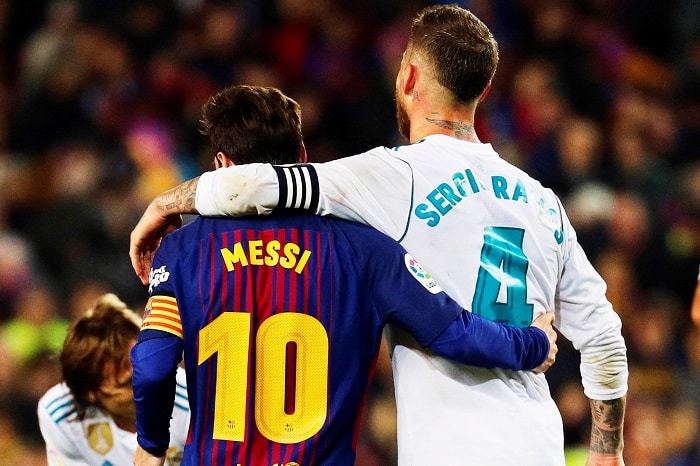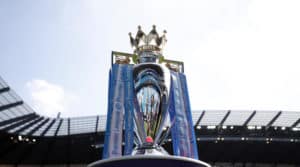Real Madrid and Barcelona were almost untouchable between 2009 and 2018 – now they’re being left behind their European rivals.
Eras can end with a flourish or a whimper. Perhaps Real Madrid’s, and by extension, Spanish football’s domination finished with both. La Liga’s last Champions League remains Real’s 3-1 win over Liverpool in 2018, Gareth Bale’s spectacular overhead kick seeming a manifestation of the merits of the Galactico policy. Minus a loaned-out Bale, Real limped out of the semi-finals this week, overpowered and out-thought by Chelsea.
Writing off Real can be a dangerous business but Luka Modric and Sergio Ramos are both 35, Karim Benzema 33, Marcelo 32 and Toni Kroos 31. There was no last hurrah for them. This team surely will not win another Champions League. Indeed, even the man who was supposed to provide the magic for the next generation, Eden Hazard, is a 30-year-old with four Real goals. The Belgian managed not to look like a man who had taken the wrong option when celebrating with his old Chelsea team-mates at Stamford Bridge; the problem for many in Spain was that he was celebrating at all.
Between them, Real and Barcelona won seven of the 10 Champions Leagues between 2009 and 2018. Barcelona’s semi-final defeats in two years they didn’t win, 2010 and 2012, felt utterly improbable. It was the pre-eminence of Lionel Messi and Cristiano Ronaldo, but it was more than that. It was cementing them as the global game’s two resident superpowers, both financial and footballing.
Now Real have two last-16 exits and a semi-final since selling Ronaldo. Barcelona are exiting Europe at a progressively earlier stage: semi-finalists in 2019, quarter-finalists in 2020, eliminated in the last 16 now. They have lost 4-0 to Liverpool, 8-2 to Bayern Munich and 4-1 to Paris Saint-Germain. The German game has supplanted Spain’s as the most influential, the Premier League, with its two all-English finals in three seasons, as the most powerful. They no longer have the best ideas or the finest personnel.
Real and Barcelona have failed comprehensively at succession planning. Only three of Zinedine Zidane’s starters against Chelsea were under 28. Benzema has never been more important for them, but he has played Champions League football against David Weir, who turns 51 this weekend.
Over at the Nou Camp, Barcelona got a £198 million windfall for Neymar but have spent around £350 million on Philippe Coutinho, Ousmane Dembele and Antoine Griezmann; only the latter is not a complete failure and he has been underwhelming. Their manager is Ronald Koeman and their attack sometimes features Martin Braithwaite.
They have been architects of their own decline. Real president Florentino Perez declared of his pet project, the European Super League, that: “It saves football.” It was supreme hypocrisy: these two clubs should have required less saving than anyone else. This season’s financial figures are yet to be released, but Real and Barcelona probably have a combined turnover of around €4 billion since the 2018 Champions League final. Apart from regular La Liga titles, they don’t have much to show for it.
That expenditure reflects huge wage bills. If they have suffered for their success and Barcelona have paid a Messi premium, Real are spending a fortune for Bale not to play for them. It is mismanagement. And while this season’s Champions League final, between Chelsea and Manchester City, will prompt talk of the resources of states and the extra injection of funds from billionaires, it is worth noting that the last two champions of Europe were Bayern Munich and Liverpool: both better run clubs than Spain’s superpowers, both underpinned by more coherent thinking and a more modern brand of football.
But if perhaps there was an inevitability that Real and Barca would come back to the pack when the resident superstars aged, and the probability is that no two players will dominate the next 15 years in the way they have reigned in the last 15, now one can’t win the Champions League without Ronaldo and the other can’t with Messi. There are times when they still seem to exert a gravitational pull on players, as Hazard shows, but the budget for Galactico signings is reduced. The savvy may think they have fewer reasons to move to the Bernabeu or the Nou Camp does not come with the guarantee of glory. After the decade of Spanish supremacy, we may now be in a phase of Anglo-German power.





